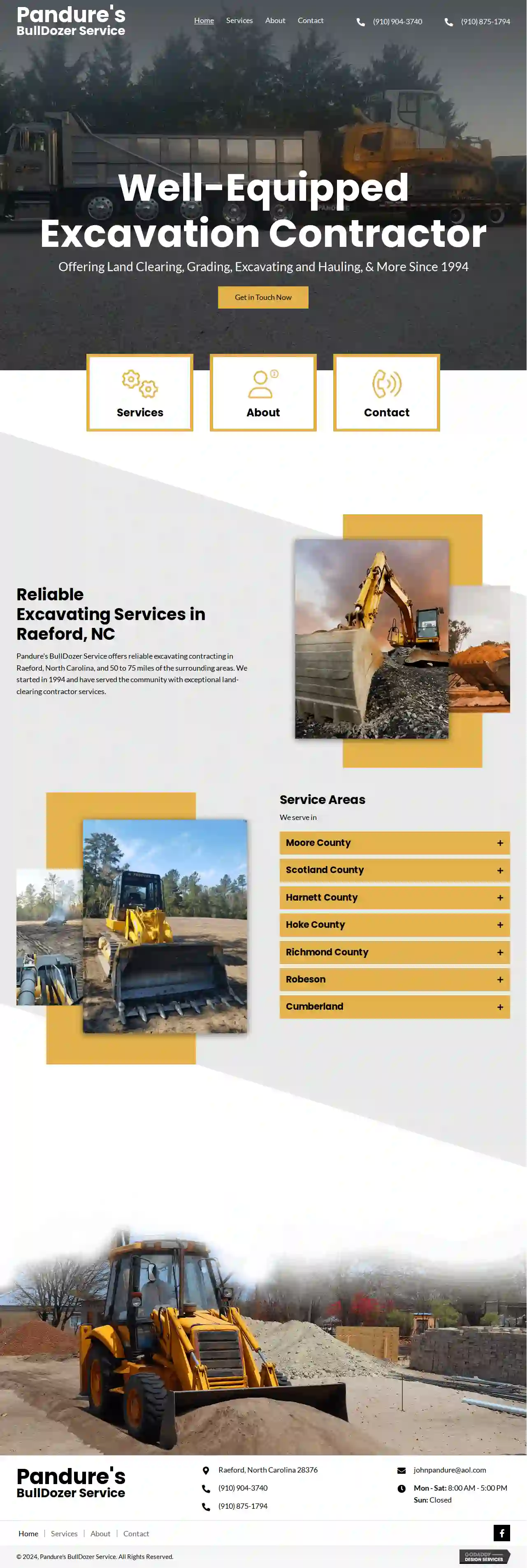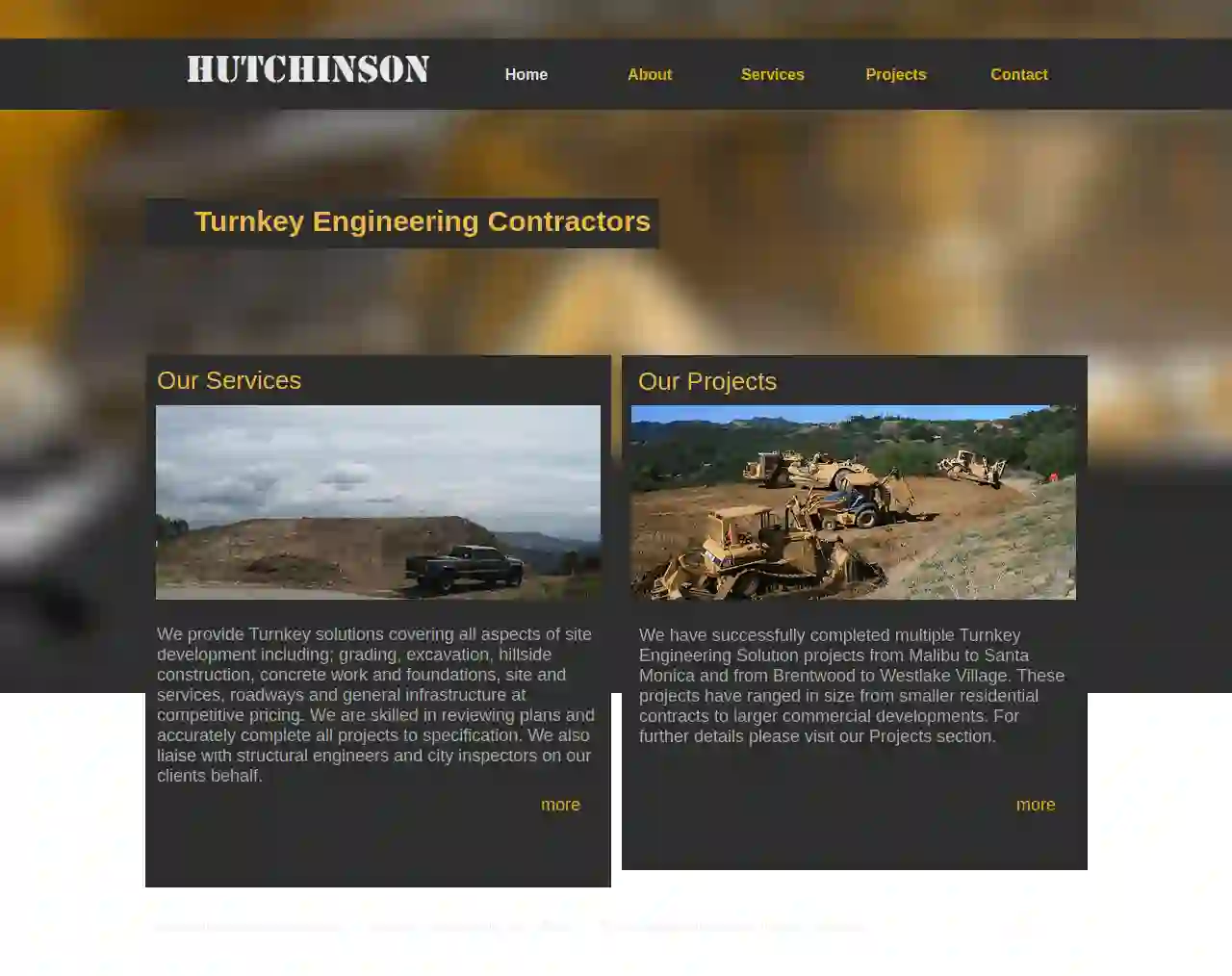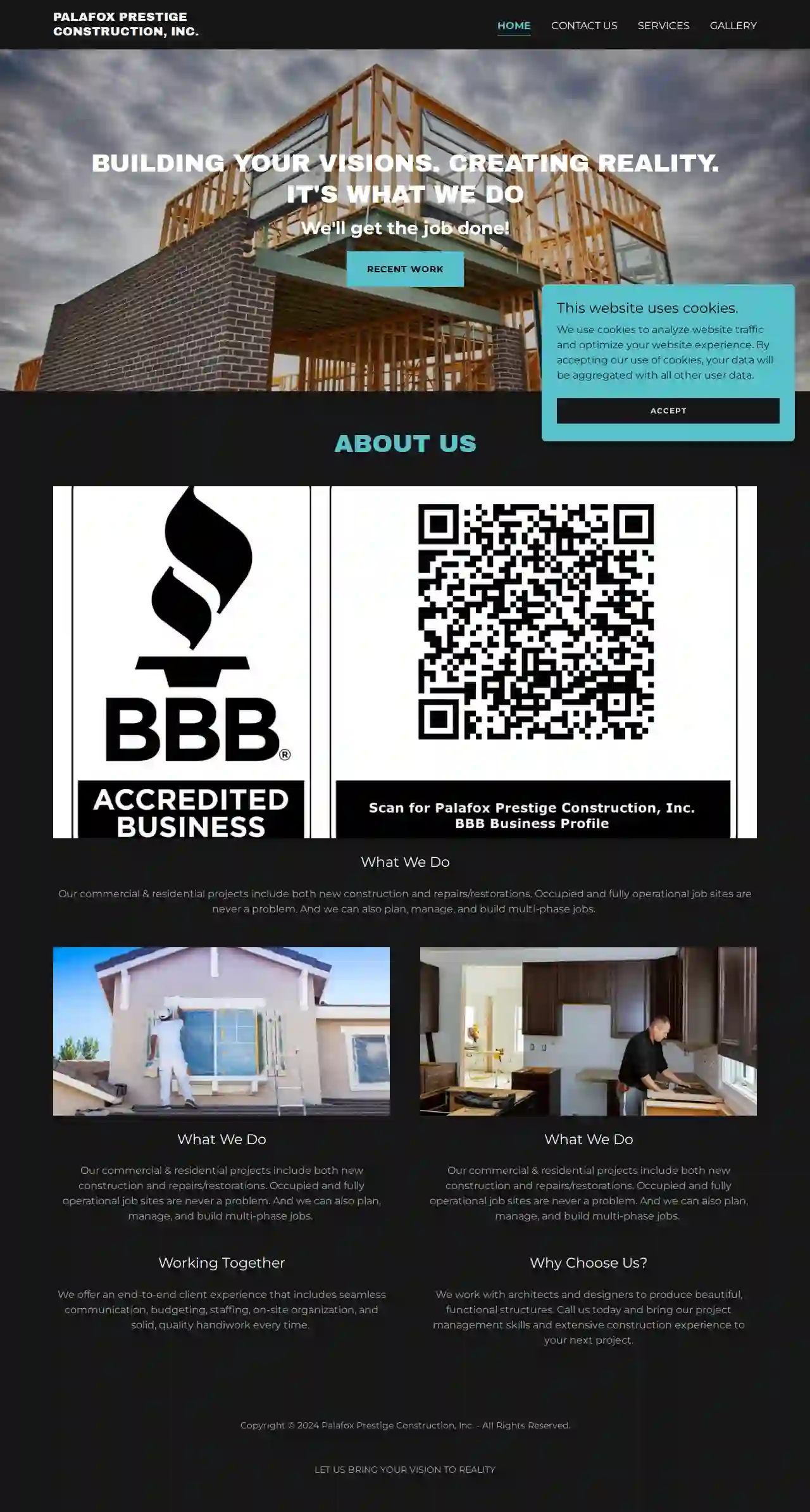Demolition Contractors North Fair Oaks
Find Demolition Companies in North Fair Oaks
Receive up to 3 Local Demolition Contractors quotes for your project today! Compare profiles, reviews, accreditations, portfolio, etc... and choose the best service.

E&F Construction Services
4.73 reviews851 TRESTLE GLEN RD, Oakland, 94610, USAbout E&F Construction E&F Construction was founded in 2004 by Tony Elenteny, who brought years of experience from his family's construction company. In 2015, Paul Hollenbach, with over 15 years of experience running his own construction company, joined forces with Tony. Together, they combined their expertise to create a construction company with over 35 years of experience in general contracting and project management. Their areas of expertise include seismic retrofits, high-end kitchen and bath renovations, whole home remodels, foundation and structural repairs, and light commercial tenant improvements and HOA projects throughout the East Bay. At E&F Construction, they take pride in their exceptional customer service, responsiveness, and clear communication throughout every stage of a project. Whether you have plans ready or are just starting to consider changes to your home or business, their skilled, clean, and thorough crews are available to meet your needs efficiently and within budget. Personally supervised by Tony and Paul, every E&F crew consistently demonstrates meticulous attention to detail, design aesthetics, efficient use of space, timeliness, and respect for your property. E&F Construction understands that making significant aesthetic or structural changes to your home or business is a complex process with many moving parts and a high potential for costly errors. They believe that when done right, improvements can add lasting value, increasing your ROI, satisfaction, and enjoyment of the space. Whether you're looking to earthquake-proof your building, add a master suite, or give your entire home a refresh, your time, money, and project deserve the skilled workmanship, effective project management, and trustworthiness that E&F Construction represents. Don't let your dream project turn into a nightmare. Let E&F Construction handle all your construction needs now and in the future. They care about you and your project! Check us out on Yelp.
- Services
- Why Us?
- Our Team
- Gallery
Get Quote
Summit Building Group
51 reviewsSacramento, USSummit Building Group: Your Vision, Our Expertise At Summit Building Group, we are passionate about transforming your vision into reality. We are a full-service construction company specializing in a wide range of projects, from residential remodeling and additions to commercial building construction and tenant improvements. Our commitment to quality craftsmanship, meticulous attention to detail, and collaborative approach ensures a seamless and rewarding construction experience. We understand that building or renovating your space is a significant investment, and we are dedicated to providing you with the highest level of service and expertise. Our team of experienced professionals, including architects, designers, project managers, and skilled craftsmen, work together to deliver exceptional results that exceed your expectations. Whether you are dreaming of a stunning kitchen remodel, a spacious home addition, or a modern commercial building, Summit Building Group is your trusted partner. We are committed to building lasting relationships with our clients, providing transparent communication, and delivering projects on time and within budget. Contact us today to schedule a free consultation and let us help you bring your vision to life.
- Services
- Why Us?
- Gallery
Get Quote
Sierra Construction
51 reviewsPO Box 5080, Sonora, CA, PO Box 5080 Sonora, 95370, USAbout Us We are an A and B licensed contractor located in Tuolumne County, CA. Our expertise is in grading and excavation. We offer high quality service for affordable prices that put us a step ahead of the competition. PROMPT AND RELIABLE At Sierra Construction our clients are our priority. We take pride in doing what we say we will do in regards to project timelines/budgets and we go the extra mile to make sure our customers are completely satisfied with our work. Call us today and find out what we can do for you.
- Services
- Why Us?
- Gallery
Get Quote
Pandure's BullDozer Service
58 reviewsRaeford, 28376, USPandure's BullDozer Service: Your Trusted Excavation Partner Pandure's BullDozer Service is a family-owned and operated excavation and land clearing specialist based in Raeford, North Carolina. We've been serving the community since 1994, providing reliable and professional services for all your land clearing, grading, excavating, and hauling needs. Our team is comprised of skilled professionals with decades of experience in the industry. We are committed to delivering seamless, safe, and trustworthy services, always prioritizing transparency and working within your budget. Whether you need land leveling for a new construction project, demolition work to clear an existing structure, or expert grading and excavating services, we have the expertise and equipment to handle it all. We are proud to serve a wide range of clients, including builders, developers, and homeowners in Raeford and the surrounding areas. At Pandure's BullDozer Service, we are dedicated to providing exceptional customer service and exceeding your expectations. Contact us today to discuss your project and let us help you bring your vision to life.
- Services
- Why Us?
- Testimonials
- Gallery
Get Quote
Goldenline Construction
4.9150 reviews6449 INDEPENDENCE AVE., WOODLAND HILLS . CA ., 6449 INDEPENDENCE AVE. WOODLAND HILLS . CA ., Woodland Hills, 91367, USWhy Choose Goldenline Construction as your General Contractor? With over 20 years of experience, Goldenline Construction is your trusted partner for home remodeling and construction services in Los Angeles and Ventura County. We specialize in transforming homes and commercial properties with a deep understanding of local design trends and professionalism in our industry. As a full-service general contractor, we handle every aspect of your project—from planning and permits to final completion. Our commitment to quality, attention to detail, and customer satisfaction sets us apart. Whether it’s a kitchen or bathroom remodel, or a complete home renovation, we deliver results that enhance your living experience and add value to your property. Serving Los Angeles and Ventura County, we have been # 1 General contractor for home owners in cities Woodland Hills, Thousand Oaks, West Hills, Encino, Sherman Oaks, Granada Hills etc. We combine expertise with a passion for excellence, making us the ideal choice for your next remodeling project. Contact us today to learn how we can bring your vision to life.
- Services
- Why Us?
- Gallery
Get Quote
JPS General Construction
53 reviews123 Main Street, Anytown, 12345, USAbout JPS General Construction JPS General Construction is a family-owned and operated business with over 20 years of experience in the construction industry. We are committed to providing our clients with high-quality workmanship, exceptional customer service, and competitive pricing. We specialize in a wide range of construction services, including: Residential construction Commercial construction Remodeling Additions Roofing Siding Windows and doors Decks and patios Concrete work And more! We are fully licensed, insured, and bonded, and we are committed to providing our clients with peace of mind. We work closely with our clients to ensure that their projects are completed on time and within budget. We are also dedicated to providing our clients with a positive and stress-free construction experience. If you are looking for a reliable and experienced construction company, look no further than JPS General Construction. We are committed to providing our clients with the highest quality construction services available.
- Services
- Why Us?
Get Quote
Bryan Hutchinson Grading
52 reviews2530 N Topanga Canyon Blvd., Topanga, 90290, USTurnkey Engineering Contractors Hutchinson Engineering is a trusted and experienced turnkey engineering contractor specializing in providing comprehensive site development solutions. We handle all aspects of your project, from grading and excavation to hillside construction, concrete work and foundations, site and services, roadways, and general infrastructure. Our commitment to quality and competitive pricing ensures your project is completed to the highest standards. We are experts in reviewing plans and meticulously execute all projects according to specifications. Our team works closely with structural engineers and city inspectors on your behalf, ensuring seamless communication and compliance throughout the process. With a proven track record of successful projects in prestigious locations like Malibu, Santa Monica, Brentwood, and Westlake Village, we have the expertise to handle projects of all sizes, from smaller residential contracts to larger commercial developments.
- Services
- Why Us?
- Accreditations
- Gallery
Get Quote
Roto-Rooter Plumbing & Water Cleanup
4.8Fort Lauderdale, USYour Local Roto-Rooter Plumber in Fort Lauderdale, FL Need a plumber in Ft. Lauderdale, FL? Roto-Rooter is your trusted choice for drain cleaning, water heater repair, and emergency plumbing needs. Ft. Lauderdale residents and businesses depend on us for plumbing services 24/7, 365 days a year, including holidays. Our experienced plumbers will promptly, affordably, and efficiently address your plumbing concerns. Trusted and recommended since 1935, we are the leading plumbing company in the USA. When you choose Roto-Rooter of Ft. Lauderdale, you can expect the following: Same day service 24/7 availability No hidden or extra charge for plumbing or drain service on holidays, nights, and weekends Free onsite and upfront estimates Professional, experienced plumbers State-of-the-art diagnostics and equipment Senior and military discounts Coupons and financing options available Contact us at 954-735-3879 or use our online scheduling form to arrange an appointment with one of Roto-Rooter's friendly, professional Ft. Lauderdale plumbers.
- Services
- Why Us?
- Testimonials
- Gallery
Get Quote
G-Core Engineering
51 reviewsBrentwood, USWho We Are G-Core Engineering is a family-owned general engineering contracting business with over 15 years of experience in the construction industry. G-Core can streamline the construction process and schedule for general contractors and developers by performing our services all in one. By providing the demolition of an existing structure, site preparation, excavation, drilling, and shoring, we cut the number of subcontractors our client is required to hire, making us a single point of contact. We work closely with engineering firms to optimize and value engineer designs whenever possible. Serving the entire San Francisco Bay Area, we have the expertise, equipment, personnel, and necessary resources to complete any project safely and on time.
- Services
- Why Us?
- Gallery
Get Quote
Palafox Prestige Construction, Inc.
517 reviewsTulare, USBuilding your visions. Creating reality. It's what we do. We'll get the job done! What We Do Our commercial & residential projects include both new construction and repairs/restorations. Occupied and fully operational job sites are never a problem. And we can also plan, manage, and build multi-phase jobs. Working Together We offer an end-to-end client experience that includes seamless communication, budgeting, staffing, on-site organization, and solid, quality handiwork every time. Why Choose Us? We work with architects and designers to produce beautiful, functional structures. Call us today and bring our project management skills and extensive construction experience to your next project.
- Services
- Why Us?
- Gallery
Get Quote
Over 22,076+ Excavation Businesses in our network
Our excavation companies operate in North Fair Oaks & beyond!
ExcavationHQ has curated and vetted Top Excavation Companies in North Fair Oaks. Find a trustworthy contractor today.
Frequently Asked Questions About Demolition Contractors
- Permits and Regulations: Obtain all necessary demolition permits and comply with local building codes and environmental regulations.
- Contracts: Have a clear and comprehensive contract with the demolition contractor outlining the scope of work, payment terms, and liabilities.
- Environmental Laws: Comply with environmental laws regarding hazardous material removal, waste disposal, and pollution control.
- Neighboring Property Rights: Respect neighboring property rights and take measures to prevent damage or disruption to adjacent properties.
- Worker Safety: Adhere to worker safety regulations and provide a safe working environment for demolition crews.
- Implosion: Using explosives to collapse a structure inwards rapidly. Suitable for large buildings in open areas.
- Wrecking Ball: Swinging a large steel ball to impact and break down the structure. Effective for bringing down walls and other solid elements.
- High-Reach Demolition: Utilizing specialized excavators with extended arms and demolition attachments for dismantling tall structures piece by piece.
- Selective Demolition: Removing specific parts of a building while preserving other sections. Often used in renovation projects.
- Deconstruction: Carefully dismantling a building to salvage reusable materials, reducing waste and environmental impact.
- Feasibility Studies: Assessing the viability and challenges of a demolition project.
- Demolition Planning: Developing demolition plans, including method selection, sequencing, and safety procedures.
- Permitting Assistance: Navigating the demolition permitting process and ensuring compliance with regulations.
- Hazardous Material Surveys: Identifying and managing hazardous materials, such as asbestos and lead paint.
- Cost Estimating: Providing accurate cost estimates for demolition services.
- Project Management: Overseeing the demolition process and ensuring it proceeds as planned.
How do I find demolition contractors near me?
What are the legal considerations for demolition projects?
What are the different types of demolition?
What is the role of a demolition consultant?
How do I find demolition contractors near me?
What are the legal considerations for demolition projects?
- Permits and Regulations: Obtain all necessary demolition permits and comply with local building codes and environmental regulations.
- Contracts: Have a clear and comprehensive contract with the demolition contractor outlining the scope of work, payment terms, and liabilities.
- Environmental Laws: Comply with environmental laws regarding hazardous material removal, waste disposal, and pollution control.
- Neighboring Property Rights: Respect neighboring property rights and take measures to prevent damage or disruption to adjacent properties.
- Worker Safety: Adhere to worker safety regulations and provide a safe working environment for demolition crews.
What are the different types of demolition?
- Implosion: Using explosives to collapse a structure inwards rapidly. Suitable for large buildings in open areas.
- Wrecking Ball: Swinging a large steel ball to impact and break down the structure. Effective for bringing down walls and other solid elements.
- High-Reach Demolition: Utilizing specialized excavators with extended arms and demolition attachments for dismantling tall structures piece by piece.
- Selective Demolition: Removing specific parts of a building while preserving other sections. Often used in renovation projects.
- Deconstruction: Carefully dismantling a building to salvage reusable materials, reducing waste and environmental impact.
What is the role of a demolition consultant?
- Feasibility Studies: Assessing the viability and challenges of a demolition project.
- Demolition Planning: Developing demolition plans, including method selection, sequencing, and safety procedures.
- Permitting Assistance: Navigating the demolition permitting process and ensuring compliance with regulations.
- Hazardous Material Surveys: Identifying and managing hazardous materials, such as asbestos and lead paint.
- Cost Estimating: Providing accurate cost estimates for demolition services.
- Project Management: Overseeing the demolition process and ensuring it proceeds as planned.